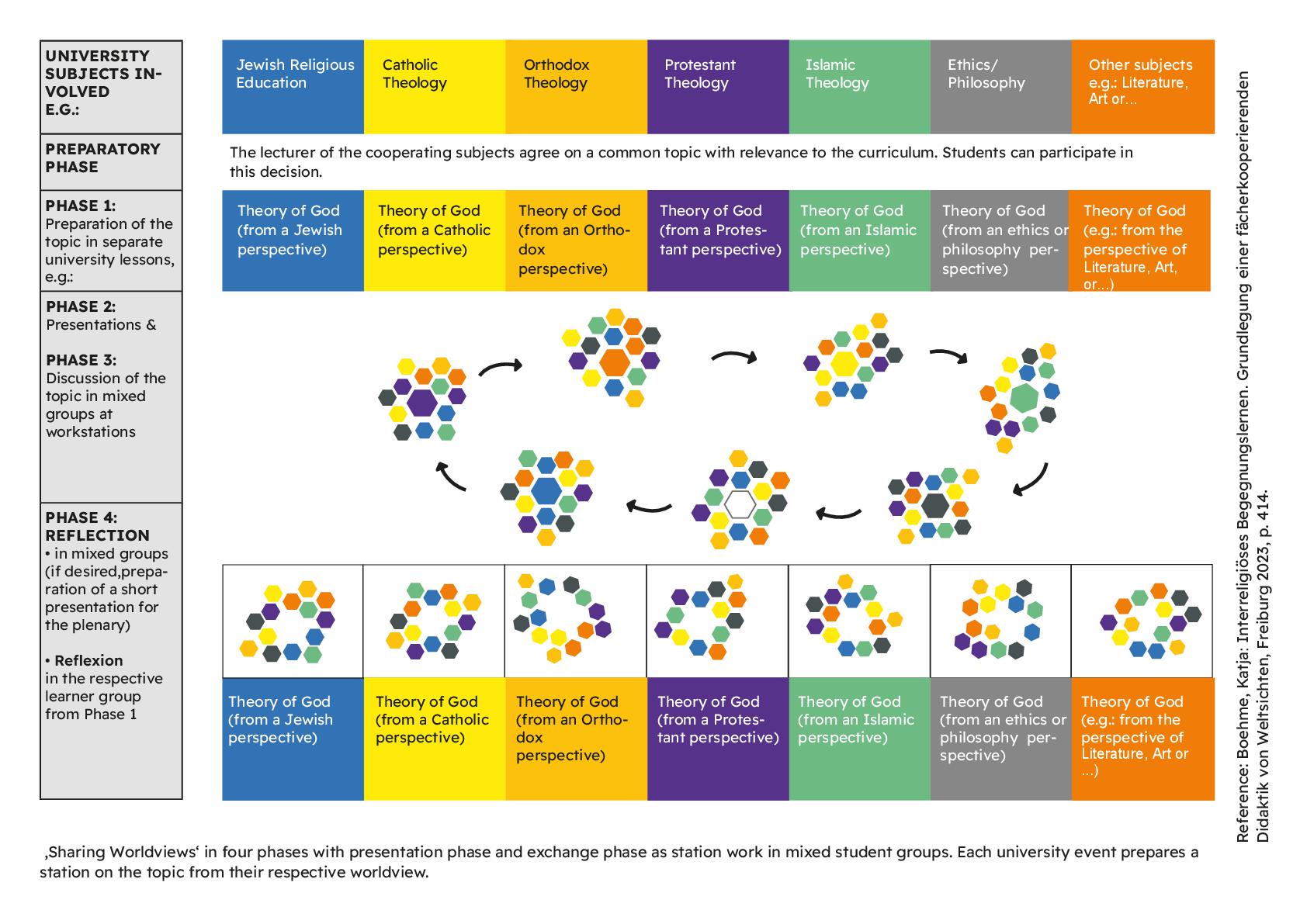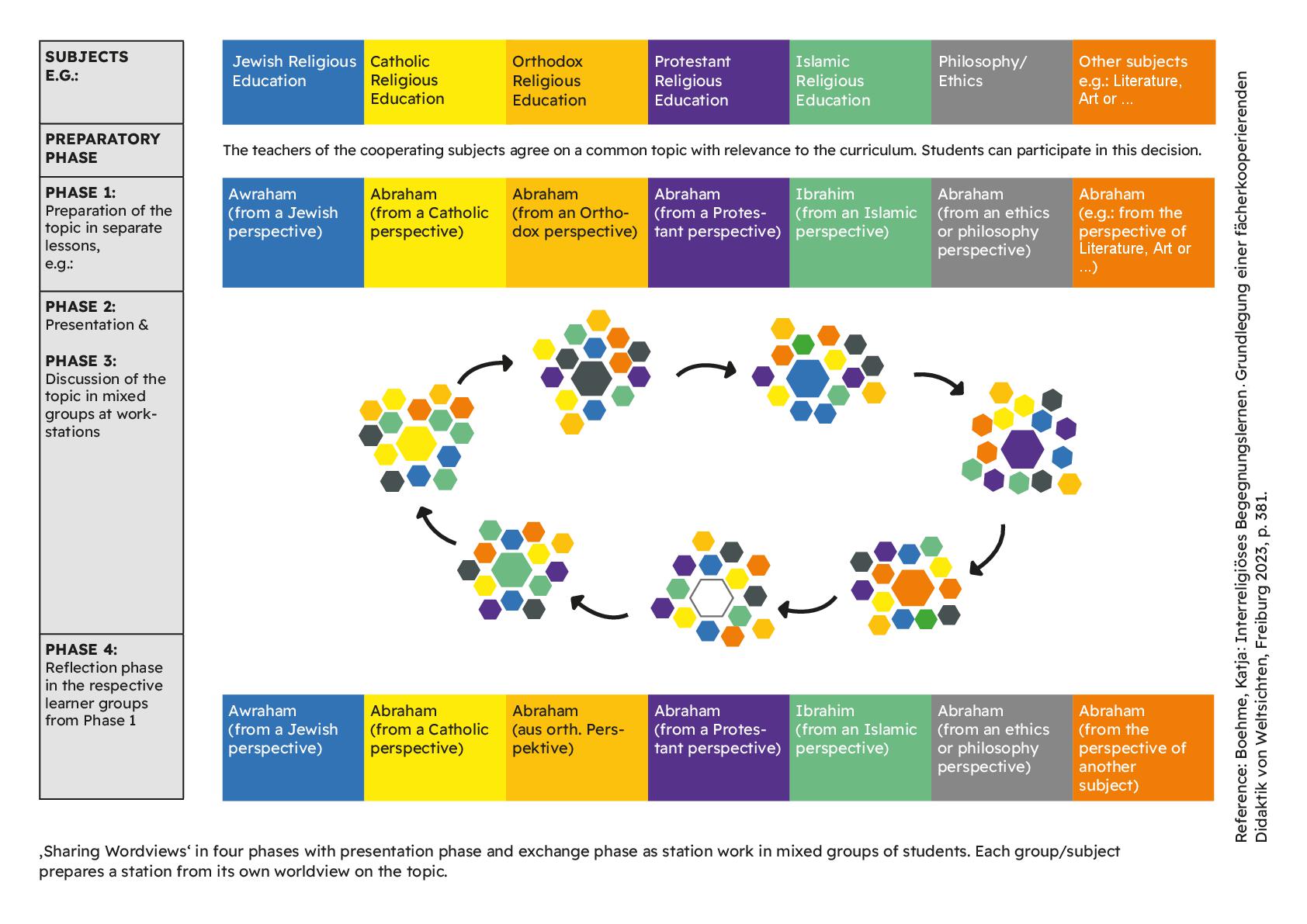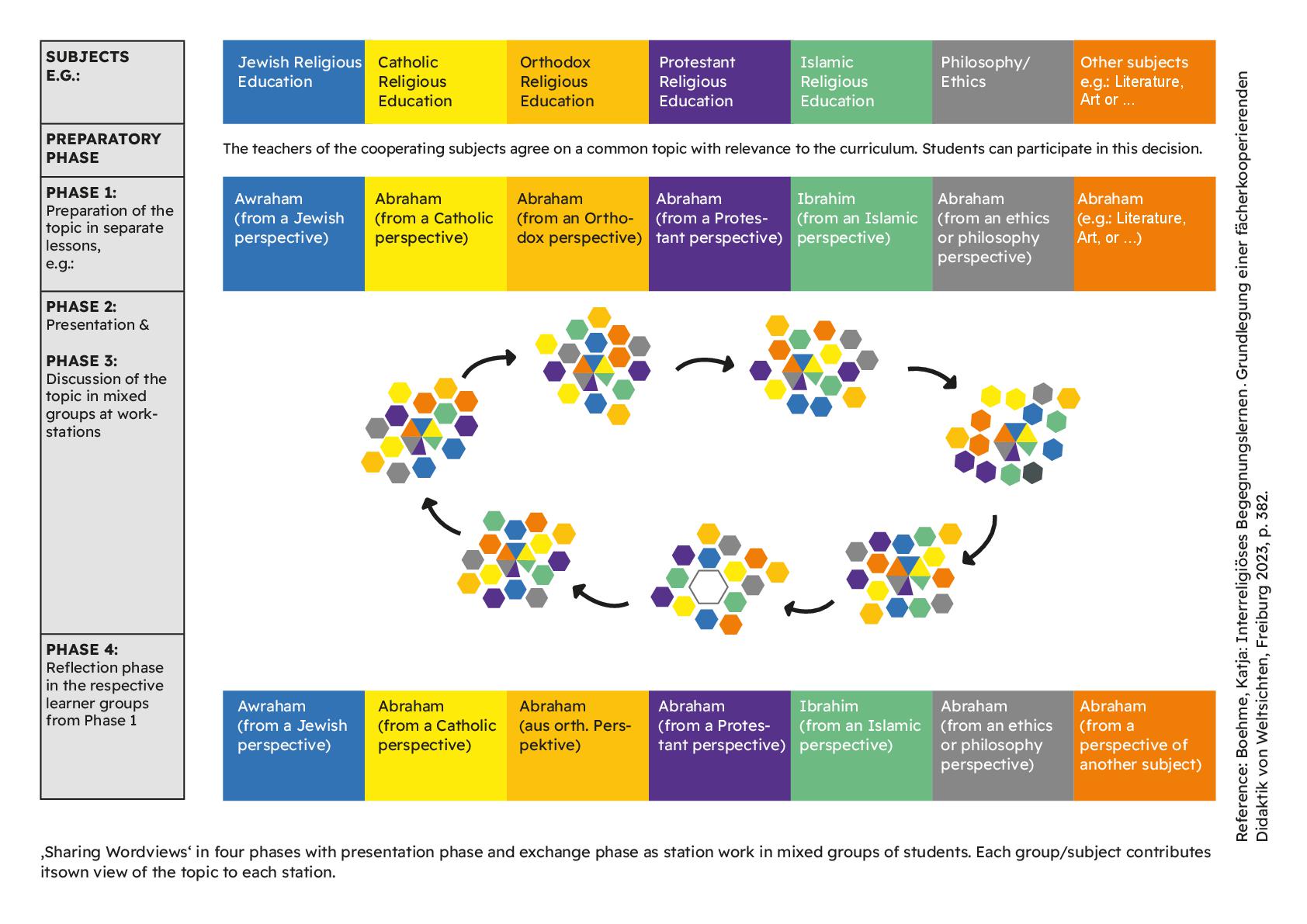The CONCEPT of "Sharing Worldviews : Learning in Encounter for Common Values in Diversity"
In societies of plurality it is increasingly an urgent educational goal to ensure the peaceful coexistence of people with different cultures, religions, worldviews and different values. Therefore all citizens of plural societies need the competences to conduct a fair dialogue in mutual respect, even with different worldviews. In order to ward off radical tendencies that undermine democratic values and want to hinder the equal recognition, participation and inclusion of all citizens (such as fundamentalism, racism, populism, nationalism, extremism, etc.), the partners of this Erasmus+ project are making an impact internationally and digitally at schools and in teacher education at universities and colleges with the program of “Sharing Worldviews”. The program of Sharing Worldviews Learning in Encounter provides the possibility of real encounters for teacher students as well as pupils. They will have the chance to meet in an international context and in digital media.
"Our goal is to bring different worldviews into conversation with each other transnationally, across religions and worldviews, as well as across subjects. We want to get students with different views to meet each other respectfully and with interest or in encounters with pupils from other subjects and other individual or collective worldviews in their own local school on site” explains Prof. Dr. Katja Boehme (PH Heidelberg) about the goal of the Erasmus+ funded project "Sharing Worldviews: Learning in Encounter for Common Values in Diversity.
The concept of learning in encounter, which has been tested in projects at schools since 2002 and in teacher training since 2011, is based on four didactic phases:
- Phase 1: Pupils elaborate a certain theme from a special religious or ethical point of view in their various subjects of religious education or philosophy, ethics lessons. Where this is not possible, they prepare the topic in a group of pupils with the same worldview.
- Phase 2: Pupils who worked on different perspectives meet and present their perspective on the theme at an Encounter Day; both from their respective school subject's perspective (collective worldview) and their personal perspective (individual worldview).
- Phase 3: Pupils share their different perspectives on the theme in encounter.
- Phase 4: Pupils reflect their increased knowledge as well as the quality of their dialogue in their own group of Phase 1.



By conducting these four phases the participants will get an insight in different worldviews and also will experience a dialogue with people of different worldviews. So they will gain knowledge as well as skills for a dialogue in mutual respect. In this way the program will help our future generation to develop competencies they need to live in a plural society.
On this interactive and international platform you will find teaching materials, information about the program or on certain topics, as well as didactic suggestions for teachers at schools as well as for lecturers on universities or colleges for teacher education who want to realize Learning in Encounter in their context. Also you will find information of an additional qualification in Learning in Encounter for teachers and students. So the program provides support on different levels in the educational system.